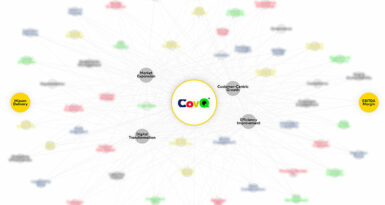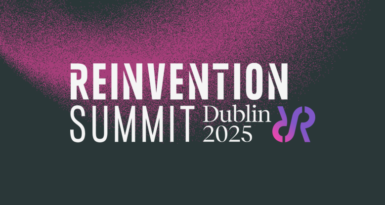
Creating a Trust Environment is a challenge for any business but particularly for the new and growing enterprise, knowing how and when can also be a question that many struggle with.
For a young business to think that the value proposition of their business model is the sole component of their relationship with the customer, misses the critical value the consumer places on the importance of a trust environment. Too often, the thinking is that doing the necessary “trust” work will scare consumers or should come later after the business is up and running and is better established. It’s the “we’re too small to worry about that” model and it’s wrong.
The expectation of trust and the value it delivers comes with virtually every decision and interaction no matter the size or value or age of the brand.
In fact, growing businesses are often at higher risk for external threats and internal control weaknesses than their larger or more well-established counterparts in the marketplace.
Founders and their executive teams need to invest as much thinking into how to integrate the principles of a trust environment into each aspect of their business as they do thinking about the quality of their code base, recruiting staff or the next fundraising round. To ignore this or push it to a later date is to risk the trust relationship necessary for high-quality long-term growth and competitive success in the marketplace.
Everyone believes that their customer relationship is special and unique, and that the customer trusts them inherently and without much reservation.
Typically, that’s not true.
For example, if you are collecting email addresses for your newsletter or customer support contact, are you sure you have the customers primary email address, or have they provided a throw-away email address they believe represents low-risk to them for spamming or abuse as they don’t check that account often or depend on it for significant or valued communications?
The basis for any well-constructed trust environment starts with 5 key principles and builds from there:
- Notice
- Choice / Consent
- Access
- Security / Integrity
- Enforcement
Merely, paying lip service to these core principles, however, isn’t enough. Having a well written Privacy Policy is absolutely necessary but definitely not the full extent of what’s necessary.
Commitment to each of these principles must be reflected not only in the language used to communicate with the customer but in your workflows, collection strategies, selection of partners as well as the need to demonstrate your ability to enforce these principles across your organization.
If we define a trust environment as one that meets and exceeds customers’ expectations, then these principles must be present in how the young business engages both directly and indirectly with the customer as well in the operational practices and policies that govern how the business performs and enables its value proposition.
Commitment to these principles will be reflected in the building of the foundation that better enables the young business to comply not only with customer expectation but also with applicable local, national and global privacy regulations that are increasing in their number and reach.
Similar to the programmatic approach used to develop product and/or operational strategy, the new business must master the use of a variety of tools and systems that help to enable the trust environment.
These would include:
- Data Governance & Access Policy
- Privacy Assessments
- Data Flow Mapping
- Information Security Risk & Threat Analysis
Additionally, the young business would do well to incorporate focus on issues of ethics on the use of technology-based tactics like ad targeting, the deployment of Artificial Intelligence, algorithms, and machine learning particularly in areas like customer support or offer decisioning.
The young business recognizes that the power and benefit of technology goes beyond simply increasing operational efficiency or the creation of economic effectiveness but also includes the responsibility of fully understanding how these tools manifest and impact the customer relationship and perceptions.
It’s no surprise that the young business is characterized by passion, energy and speed and the commitment to a robust, flexible and clearly stated commitment to a trust environment is not in conflict with this stage of development but rather the best time to engage and make it real. As a result, A trust environment is an opportunity to create value by minimizing risk and enhancing the brand experience overall: value for clients, consumers, business builders, investors, and acquirers down the line.




